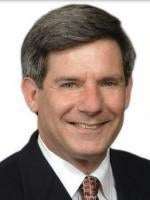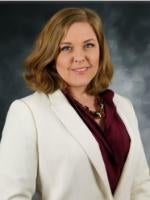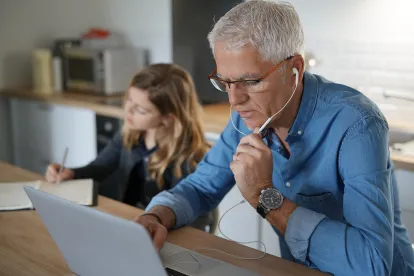From the IMS Insights Podcast Vault: Dr. Chuck Cowan, economics and statistical expert, speaks about the increasing divide between the physical and remote workforce in the pandemic era. Listen above or read the interview transcript below. (Originally recorded May 2021)
Transcript:
Hello and welcome to the IMS Insights Podcast. Today, we’re speaking with esteemed economist and statistical expert Charles Cowan, PhD about the increasing divide between the physical and remote workforce.
Dr. Cowan is the Chief Executive Officer and co-managing member for the national statistics, finance, and economics consultancy, Analytic Focus. With more than 40 years of experience, Dr. Cowan is an IMS Elite Expert, specializing in the development of financial research and its use in improving shareholder values, economic impact studies, and risk management.
Teresa Barber:
You mentioned education in schools. And I know very recently the head of the second largest school advocacy teachers union came out and said, “Schools must be open this fall. We have to have schools open.” And was citing equity and access and some of the social issues too, that we see. I know you were interested in doing a little bit of work on taking a look at, we talk about, “Yeah, I’d like to stay remote as a choice,” or “I have the ability because I work for professional services firms, so I’m going to work remotely,” but there’s also some things we’re starting to see among some areas of the workforce, the US workforce, where that choice isn’t there. Can you talk to me a little bit about the disparity and kind of the experience over the last year, that different groups of workers and even companies have been facing?
Chuck Cowan:
Yeah. Thank you for asking me about that, because that is a concern that I have on a much more macro level. So while we’re talking about this company doing something or that company doing in HR models to help individual companies, what I’m really concerned about is a greater division coming about in America because of changes in the way the workforce operates. So what you have are one class of workers who have to be there, physically present at a manufacturing job, or I think about all the nice people I’ve ever met in New York or DC or Chicago who come in every day to run the cafeteria line. And they need to be there. You can’t offer those services without having the cooks and the whatever wait staff there might be and then cashiers and all those people have to come in. They have to be physically present. They don’t get a choice as to whether or not they’re going to work from home and there isn’t going to be some way to adapt. They need to be physically present to be able to provide a service. And so there’s a lot of those people.
Chuck Cowan:
And then the small business owners who are offering things like a franchise, we talked about McDonald’s before. Most McDonald’s are actually franchises and they’re owned by small business people. But I know when I go to cities, I find a, like a sandwich shop or a newsstand or something else, a hair boutique, all of which are run and owned by small businesses. Well, if those people have to be physically present to do those things and it can’t be done remotely, you’re going to see an impact on small businesses too, especially the smallest of the small businesses, which give jobs to other people.
Chuck Cowan:
So I think you’re going to start to see a ripple effect that hasn’t been seen yet. I mean, there’s been a substantial loss because of the pandemic, but I don’t think we’ve seen the total loss because a lot of people won’t be going back to work, but they’re in the middle level. And those people will benefit from being out in their communities. The communities will benefit from having more people at home. And again, transportation, there’ll be fewer people on subways, buses, whatever transit there is into a city. But that just means that things will be more congested at home. I think that you’re going to see a big change, but the problem is that a lot of it is going to benefit middle America and not benefit the people who are in the blue collar jobs or running small businesses or providing whatever service it is where they have to be physically present.
Chuck Cowan:
And so this worries me in two different ways. One way it worries me is just that it creates a greater divide among people, because some people are going to be able to work from home and other people are not going to be able to, just like there’s an income inequality, there’s also going to be this other inequality for people who will have just fewer opportunities because they are working locally and aren’t able to benefit from the time that they’re not commuting and the time that they would have to themselves.
Chuck Cowan:
I think the other problem though, is that I also see that there’s going to be a big shift in the way services are offered and businesses that are going to be available and that’s going to essentially change the workforce of the future and the employment landscape of the future. But I think it’s going to take several years for that to shake out. It’s not going to suddenly just snap back. Schools might snap back because you do need to have that interaction, but they were there before and they had that structure. And even there, you’ve got some remote learning.
Chuck Cowan:
I was looking this up the other day and the first courses for remote learning were offered back in 1986. That’s a long time ago. And most of the universities for the last 20 years have been offering some online classes. It’s not that big of a change for the universities, but in the middle, like grade school, high school, you still need to have, again, that opportunity for the interaction and learning and meeting with professors and stuff like that. Well, the same is going to be true here, except for the fact that at the lower end, if people aren’t coming in there just would be no jobs for them.
Teresa Barber:
So much to think about Dr. Cowan. Thank you for having, for joining us today. This has really been, I mean, definitely thought provoking, and I think I’m walking away feeling like we have a lot more to watch for and a lot more to pay attention to.
Chuck Cowan:
Thank you. I really appreciate the opportunity to speak with you. And I always enjoy our conversations. They’re very thought provoking. And you allow me to wander all over the social scene as well as just thinking about the one specific topic, because everything is interrelated and I like thinking at those multiple levels. So thank you for the opportunity.
Teresa Barber:
Thank you for sharing all of this with our listeners today, Dr. Cowan, hopefully we’ll have you back again soon. We’ll keep an eye on some of this stuff.
Chuck Cowan:
Thank you very much.
Thank you to Dr. Charles Cowan for speaking with us today, and a special thanks to our listeners.





 />i
/>i

